|
A budget for recovery or a budget to balance the books? Just a few days to go, before the secrets of the Red Box are revealed. Tory big donors are warning "to increase taxes now would be utterly wrong and risk recession."
The Treasury is threatening to hike corporation tax and capital gains tax. A one percent hike in corporation tax seems likely. Further "stealth moves" on pension allowances and higher tax bands seem probable. The Chancellor will deliver a budget, which will be forced to continue support for business and the jobs market specifically. The Chancellor will be relieved, the latest job figures, suggest the damage to the economy has not been too severe as yet. At the end of December, the unemployment rate had risen to 5.1%. The number of people out of work had risen by 400,000, to 1.7 million. Vacancies are returning to the highs of last year. Headline earnings have almost doubled to 4.7%. Not bad for an economy which as endured a 10% shock to output. It really is all about the furlough scheme. Without government intervention, the unemployment rate could have risen to over 12%. The systemic shock to the economy would have undermined any prospects for recovery. Applying medieval measures of containment to a modern economy could have driven us all back to the dark ages. The latest data from HMRC confirm. In Januuary, the number of jobs furloughed in the UK peaked at 4.9 million. At the end of the month, 4.7 million remained on the scheme. Sectors most badly hit are reflected in the data. 1.15 million in accommodation and food; 938,000 in retail and distribution; 315,000 in arts and entertainment; 550,000 in manufacturing and construction. The Prime Minister's "Route to Recovery" is now well marked. The numbers furloughed should begin to fall quite rapidly. Just four months ago, in September and October, the overall total was down to 2.5 million, even as partial lock down continued. Job elasticity, in response to a release of output restraint is high, especially in the sectors most badly hit. Food, accommodation, arts, entertainment and retail will benefit from release. Some structural challenges will present, as a result of digital acceleration but the bounce back could be much faster than expected. The impact of the route to recovery on our output model suggests growth of 6.5% may be possible this year. The Chancellor may have his time to balance the books in due course. For the moment this remains the time to budget for recovery. Expect the furlough and other business support schemes to be extended to the end of June ... at least ...
0 Comments
China announced plans to double the size of the economy by 2035. The Asean leader is expected to overtake the US as the largest economy in the world by 2028. Even then it would struggle to break into the top 50 in terms of GDP per capita. The potential for continued growth remains huge.
Infrastructure will play a great part in the plans. The high speed rail network will be expanded to 70,000 kilometers. The overall rail framework is expected to cover some 200,000 kilometers by the end of 2035. 163 new airports will be added to the airline network bringing the total to 400. The network of highways and expressways will increase too 460,000 km. The inland water way system will increase to 25,000 km. Technology will feature in the expansion. Support for smart and autonomous vehicles, development of a home grown global navigation system, research into magnetic levitation train systems and vacuum train transit, will feature. The country will put semi conductors, including integrated circuits and advanced chips, at the center of R&D priorities. This week, the Biden administration confirmed the US is to introduce sweeping rules to limit the expansion of Chinese technology companies. The new rules will enable the State Commerce department to ban technology-related business transactions, that it determines pose a national security threat. This is part of an effort to secure U.S. supply chains. Companies in technology, telecommunications, finance and other industries say the rule could stifle innovation and hurt competitiveness. Business leaders are nervous about the plans. The President is worried about the chip crisis. The plan is to sign an executive order, reviewing supply chains for critical materials, including semiconductors, pharmaceuticals and rare-earth minerals. The report will confirm, US semiconductor manufacturers have outsourced production to Samsung and Taiwan Semi Conductor Manufacturing. Taiwan and Korea feature in the supply chain. China has 95% of the world supply of rare earth minerals. Biden may solve the chip crisis ... Johnson will supply the fish ... tariffs on imports will not help ... free markets are best at resolving a supply crisis ... That's all for this week ... stay safe ... J Government borrowing was almost £9 billion in January. That's the highest January deficit since records began. It was the first January deficit for ten years.
January is normally a month to fill the coffers. The surplus over the last two years has averaged £10 billion. Compared to prior year, the deficit this year, increased by £18 billion. Over the first ten months of the year, borrowing was £270 billion. In the last update, borrowing in the first nine months of the year was also £270 billion. The ONS has managed down, the estimates for government spending and the cost of the furlough scheme, in the year to date. The reductions in the estimates, neatly covered the shortfall, in the latest monthly accounts. Forecasts of a deficit of £400 billion in the current year, would appear to be extremely pessimistic. Pro rata forecasts would suggest the deficit in the year would be just £325 billion, of which £280 billion would relate to special pandemic measures. No real need for tax hikes in the March budget. The chancellor will have some headway to develop a budget, to manage the recovery. No need to move, at this stage, with a budget, to balance the books. In November, the OBR were forecasting a deficit of £394 billion in the current year. At face value, the January numbers don't add up.The OBR numbers included a provision of £30 billion in write offs, relating to business loans under the government's Covid Schemes. No provision is included in the ONS data to date. Some provision against the loan schemes, now in place, will have to be made.The cost of the furlough scheme may be revised up, as we receive the actual data for the first quarter of the year. The OBR update on the 3rd March will make for interesting reading. Provisions and revisions will be of critical dimension. Borrowing of £400 billion could yet be in reach for the year. Public sector net debt, increased by £316 billion over the first ten months of the year. The total level of debt increased to £2.1 trillion, that's around 97.9% of GDP. Ten year gilt yields moved up 17 basis points to close at 0.69. Sterling closed higher against the dollar at $1.402. Markets are relaxed about government deficit spending and monetary financing by central banks apparently. Bitcoin broke through $55,000 dollars this week. Musk and Tesla could have made more money from Bitcoin in January, than by selling electric cars in the whole of last year ... Last week, President Biden spoke with President XI. This week the President made the call to allies. "China's economic abuses and coercion can no longer be tolerated" he said.
"We must prove that democracy is not a relic of history". He could have been speaking about the attack on the Capitol building but a wider remit was in mind. Biden is seeking to reaffirm Uncle Sam's commitments to NATO and the transatlantic alliance. The US will rejoin the Paris climate agreement, commit to the World Health Organization and seek to revive the nuclear deal with Iran. The White House announced it was easing Trump's sanctions, against Iranian diplomats, as a first step in rapprochement. No olive branch or bamboo shoots for China. Just a broad shot across the bow. Beijing is cast as the principal threat to American-led global order. "The West should prepare for long term strategic competition with China and own the race for the future" he said. "The transatlantic alliance is the cornerstone of all we hope to accomplish in the 21st century", the President added with a flourish. Macron and Merkel stressed the divergence between the challenges for Europe and the US. Macron is aware of the significance of the Asia Pacific region to American ambitions. Merkel appealed for a balance between rivalry and collaboration with the East. "In recent years, China has gained more power on the international stage, we must react to that". The period of US hegemony has passed its sell by date. Europe is well aware China is set to overtake the US as the largest economy in the world before the end of the decade. Europe will not respond to a call to action. This is not a re run of the Boxer rebellion with an eight nation march on Beijing. Biden may be costing a decoupling from China. The estimates of $200 billion dollars a year to the US would be a price to high to pay in Europe. It is also a price to high to pay for Uncle Sam ... of that, the adults in the White House, are well aware ... The UK economy is like "a coiled spring", set to release lots of financial energy, according to Andy Haldane Chief Economist, at the Bank of England.
Consumer confidence will surge back, the economy will be firing on all cylinders. Success with the vaccination programme and an easing of lock down will assist the process. The change in sentiment is likely to be rapid. People are desperate to get on with their lives. Pubs, sports and cinemas will benefit. The Bank believes household and business balance sheets are in good shape. Consumers have been forced to reign back spending on leisure, entertainment and holidays. Many households have strengthened their finances and have money to spend. "The recovery will be a year to remember, after a year to forget." says Haldane. The leader in the Times today takes up the positive theme. "Remarkable progress with vaccinations could set the stage for a powerful recovery this year, fueled by businesses and households flush with cash." Businesses are sitting on an £100 billion cash pile. British households have amassed an astonishing £250 billion of cash apparently. The bullish outlook tends to overlook the rise in unemployment to 5% by the end of last year. Almost two million are out of work. Three million are claiming universal credit and four million are furloughed. The latest ONS data suggests UK GDP fell by 9.9% last year. The worst fall, since the year of the great frost, in 1709. Manufacturing output fell by 10%. Construction output fell by over 12%. Service sector output fell by 9%. The hotel and restaurant sector almost halved in terms of output. The continued lock down in the first quarter suggest a further modest set back in the economy, to start the year. The Chancellor will have little option but to extend the furlough scheme and introduce additional business support measures later into the year. Any thoughts of tax hikes should be put aside for the moment. The Bank of England is forecasting growth of 5% in the current year. NIESR has a more modest 3.5% on the ticket. We expect the estimates for last year to be revised up. The 9.9% estimate is based on an amalgamation of three measures of output. Details of which, have not yet been published. The GDP(O) measure reports the setback last year, was nearer 9% than 10%. Either way the prospects for a strong recovery, are in place this year. The vaccination programme has been a huge success. We expect the lock down to ease, as we move into Easter. The out turn for the year could even surprise the optimists in the Bank. It will be "a year to remember after a year to forget" ... President Biden told reporters this week his call with President Xi Jinping lasted two hours. Biden said it was a “good conversation” between two leaders who know each other well. The two leaders exchanged views on world health, climate change and weapons proliferation.
The US President touched on the sensitive areas of the crackdown in Hong Kong, the suppression in Xinjiang province and the aggressive moves on Taiwan. President Xi made it clear, such issues were "internal affairs". Matters in which, the US should not seek to interfere. President XI advised cooperation as the only correct choice for the two nations. Confrontation between the two nations would be a disaster. The key is "mutual respect, equal treatment and the handling of issues in dispute in a constructive and positive manner." Biden seemed impressed by China's advances in transportation, particularly in the areas of high speed rail and electric vehicles. The US has a lot of catching up to do. China's high-speed railway network is the largest in the world. The network reached 36,000 km (22,000 miles) in total in 2020, with plans to reach 70,000 km (43,000 miles) by 2035. In the US, Amtrak's Acela Express, is the US only high speed rail service. The entire route from Boston to Washington, covers less than 500 miles and takes over six hours to navigate. The President made the call, for Uncle Sam to step up, to compete effectively in areas of new technology. The administration promises to jump-start the clean-energy sector. It faces an uphill climb. The United States has fallen behind Asia and Europe, in the race to produce the high-tech batteries, powering electric cars and storing solar and wind energy. China dominates battery production today, with 93 "gigafactories" manufacturing lithium-ion battery cells. There are just four in the United States, according to Benchmark Mineral Intelligence. If current trends continue, China is projected to have 140 gigafactories by 2030, Europe will have 17 and the United States, just 10. China now leads the world as the leading destination for Foreign Direct Investment. Soon it will lead the world in Artifiicial Intelligence. China now has one billion internet users and claims an 80% share of world users of 5G. The largest learning networks lead the AI race. In digital currency, China's plans are well advanced. Beijing will hand out $1.5 million in a further trial of the central bank's digital currency during the lunar holiday weekend. The total of 10 million yuan will be distributed through 50,000 parcels of 200 yuan. This marks the third major test of the digital currency under development, by the People's Bank of China. China is set to overtake the US as largest economy in the world by 2028. Shares of world trade have been boosted on the back of the virus recovery. The potential remains huge. By the end of the decade, China will still struggle to enter the top 50 countries in the world, in terms of GDP per capita. The priorities for the Biden administration will be to rebuild the industrial base, develop an edge in innovation and accelerate investment in semi conductors, artificial intelligence, biotech and clean energy. A review of the tariff policies both with China and with Europe is set to follow. "We looked at what the Trump administration did over the last four years and found merit in the basic proposition of an intense strategic competition with China. But we found deep problems with the way in which the Trump administration went about that competition." "'The approach, depleted the core of American strengths, putting the US in a weak position to carry out that competition. Overreach on technology restrictions, inhibits the development of US business and could push other countries toward China." A more positive decision on TikTok is expected as the Biden administration determines its own response to risks. The Biden administration's review is being led by officials who have been critical of Mr. Trump's targeting of Chinese tech companies. It is said, Biden's strategy will be driven by an awareness ..."The lions share of the history of the 21st century will be written in the Asia Pacific region", most of which will be outlined on the Chinese mainland. Confrontation would be a disaster. Cooperation would be a move in the right direction. Co-opetition would be the way forward, especially in areas of new technology and infrastructure. President Biden may have made the call but President Xi reversed the charges. It should be a wake up call for Uncle Sam ... At the MPC meeting this month, Bank Rate was maintained at 0.1%. It was agreed the Bank of England should continue with the existing program of UK government bond purchases, financed by the issuance of central bank reserves.
No more talk of QE, the target for the stock of purchases is currently set at £875 billion. The Chancellor's £1 trillion pound bank note is in reach. Monetary financing of the fiscal deficit, is set to continue. The Bank upgraded the expected out turn for 2020 slightly with an estimated drop in GDP of 10% from a previous 11%. Forecasts for the current year were downgraded, as a result of the lock down in the first quarter. The Bank now expects a progressive recovery from the second quarter onward. Growth in the year as a whole, is expected to be 5% this year and over 7% in 2022. The unemployment rate is expected to peak at around 6.5% this year before falling to current levels by the end of the following year. Inflation is expected to move to the 2% target by the end of the year, pushing slightly above target range in 2022. No surprises in the forecasts. No surprises either in the decision on monetary policy. Ten year gilt rates moved higher. Sterling moved closer to our mid term target of $1.40. Markets were slightly confused by the messaging on negative rates. The economy is set to recover rapidly, inflation is set to rise. The next move for interest rates, is more likely to be up but not for some time yet. This appeared to be strange time, to instruct the banking sector, "to commence preparations in order to be ready to implement a negative bank rate at any point after six months." The MPC stressed the requests should not be interpreted as a signal the setting of negative rates was imminent or indeed in prospect at any time. Enquiries by the PRA had revealed the Banking sector was ill prepared for the implementation of negative rates. High street lenders were not in a position to handle negative rates. Computer systems were not designed to accommodate reverse rate lending. It would take six months to implement the changes required. The Governor's chisel in the tool box was a spanner in the works, without a transition period. Lenders should make the move now, to ensure, they will have the infrastructure to implement the changes, if and when required. It was a well argued decision. The request could be misconstrued, as a signal the setting of a negative bank rate was in prospect or even imminent. This was a signal the Committee did not wish to send. It was not warranted by the "current conjuncture" and the "economic outlook", the minutes of the meeting explained. Six months to make the changes. In six months it will become apparent the downward move will be irrelevant. "Let's do it anyway" appeared to be the decision. Overall it was concluded" it would be appropriate to start the preparations to provide the capability to do so if necessary in the future", even though at the moment it would appear, it would not be necessary at all. This week, it was revealed a large cannabis plant was discovered near the Bank of England. The discovery followed a tip off about "a strong smell of cannabis" wafting over Threadneedle Street ... just saying ... Calmly and with measured tone, the Joe Biden Foreign Policy takes shape. A freeze on troop withdrawals from Germany, a halt to support for military operations in Yemen. Strong words for President Putin. Strong words for President XI.
"The days of the US rolling over in the face of Russian aggression are over". US warships have been dispatched to the Black Sea. Aircraft Carriers in the South China Sea, destroyers pass through the Straits of Taiwan. Uncle Sam is making overtures to Japan and South Korea to support China's containment in the East. Foreign policy chiefs are laying down the markers for future policy plans. The hope is a framework is created to handle future policy disputes. Yang Jiechi, China's foreign policy chief, urged the US to work with Beijing to create a non-confrontational relationship. "The two nations should respect each others' core interests. Taiwan is the most important and sensitive issue to China. Washington should not interfere with China's domestic affairs in Tibet, Xinjiang and Hong Kong" he said. US Secretary of State Antony Blinken warned the US would work with allies and partners to hold China accountable for threats to regional stability. The US will continue to stand up for human rights and democratic values, around the world. Tensions between China and the US are unlikely to ease quickly. President Biden described China as the "Most serious competitor" to the United States, promising to push back on China's attack on human rights, intellectual property and global governance. Biden has still not spoken to President Xi since taking office. He referred to Xi as a "thug" during his election campaign. The good news Biden has conceded, Taiwan will not become a focus of contention for the two super powers. The "One China" policy will continue. The State Departments are talking on the phone. There is hope for rapprochement yet ... That's all for this week, stay safe, hands, face and space ... |
The Saturday EconomistAuthorJohn Ashcroft publishes the Saturday Economist. Join the mailing list for updates on the UK and World Economy. Archives
July 2024
Categories
All
|
| The Saturday Economist |
The material is based upon information which we consider to be reliable but we do not represent that it is accurate or complete and it should not be relied upon as such. We accept no liability for errors, or omissions of opinion or fact. In particular, no reliance should be placed on the comments on trends in financial markets. The presentation should not be construed as the giving of investment advice.
|
The Saturday Economist, weekly updates on the UK economy.
Sign Up Now! Stay Up To Date! | Privacy Policy | Terms and Conditions | |

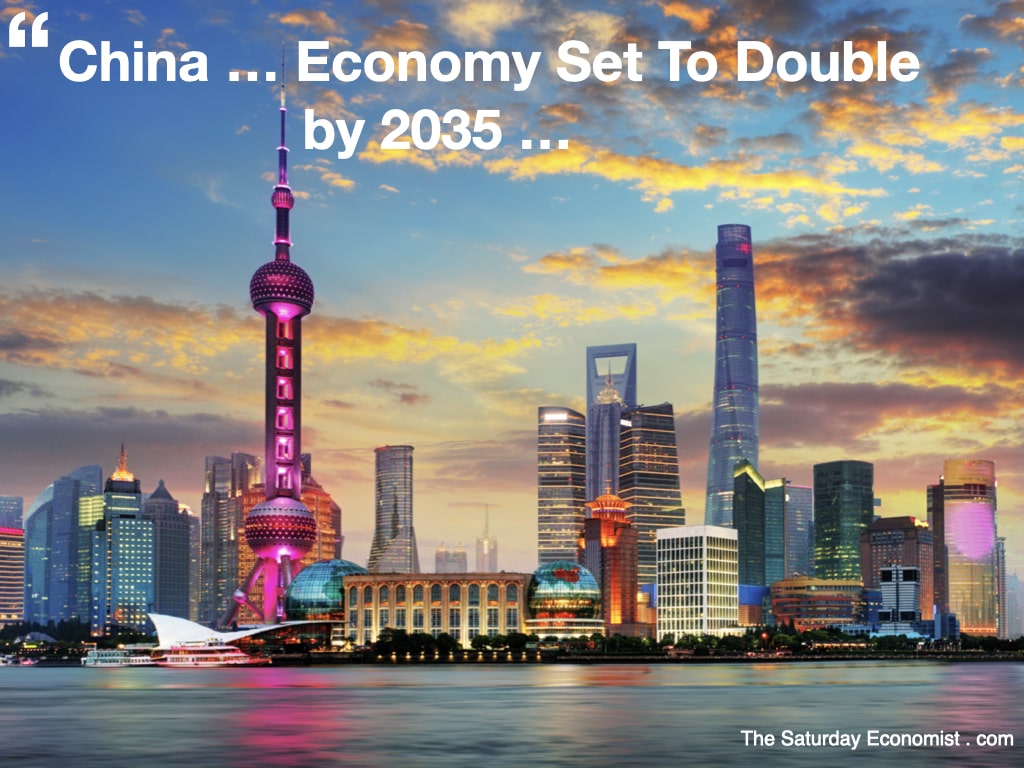
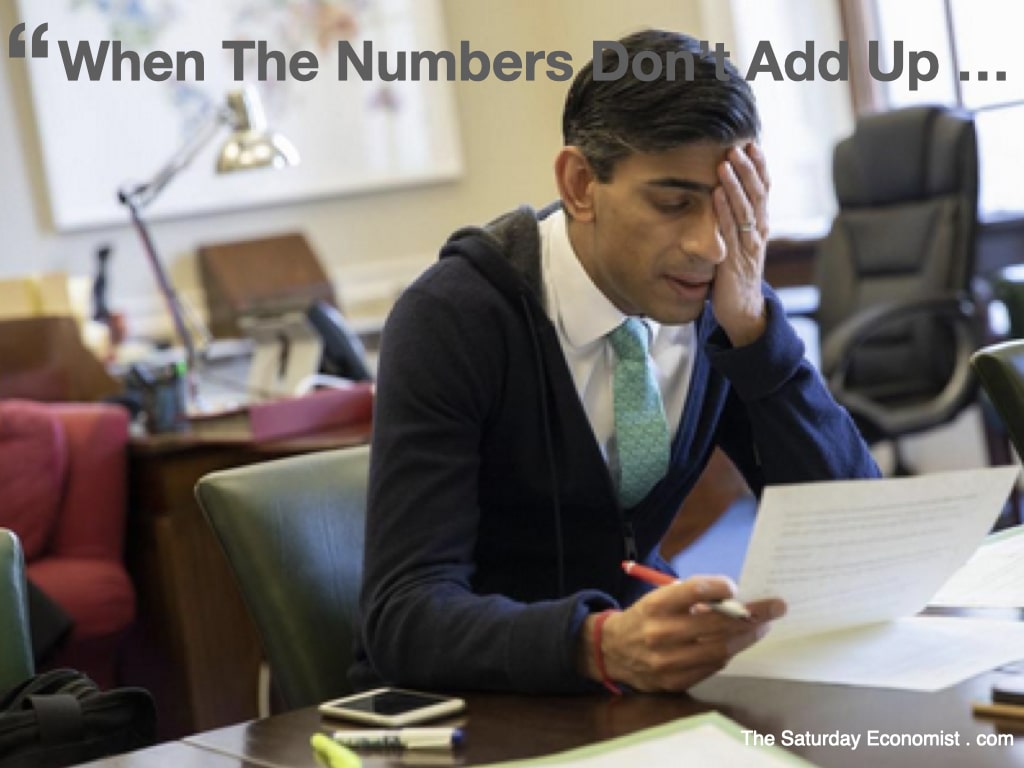
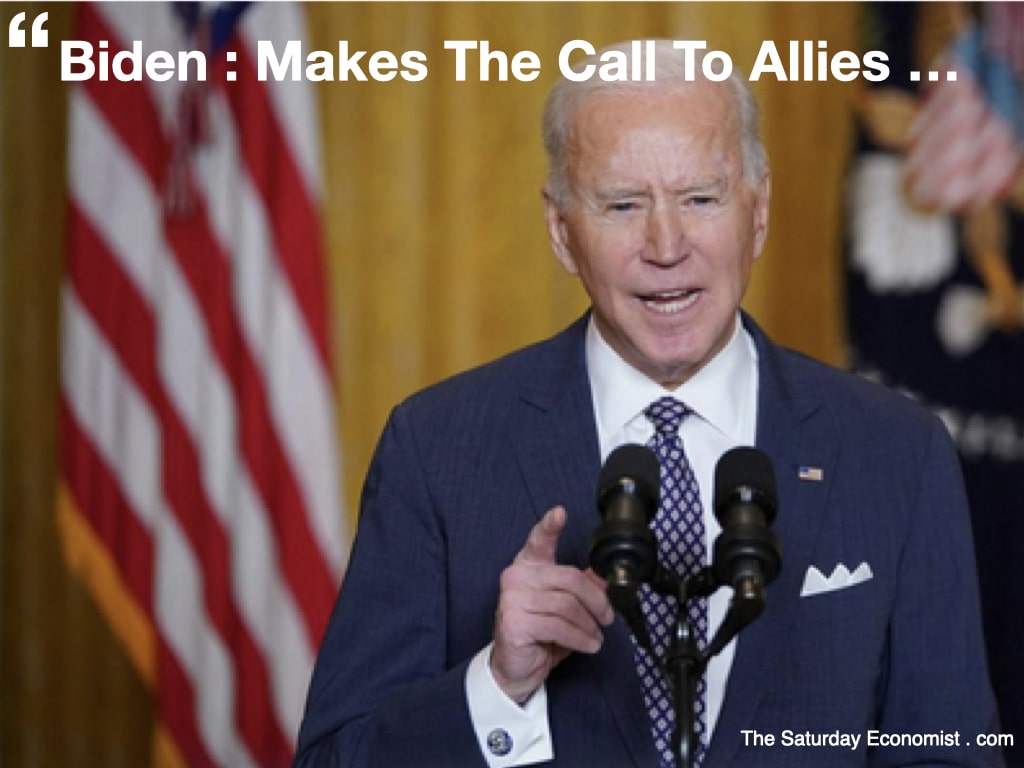
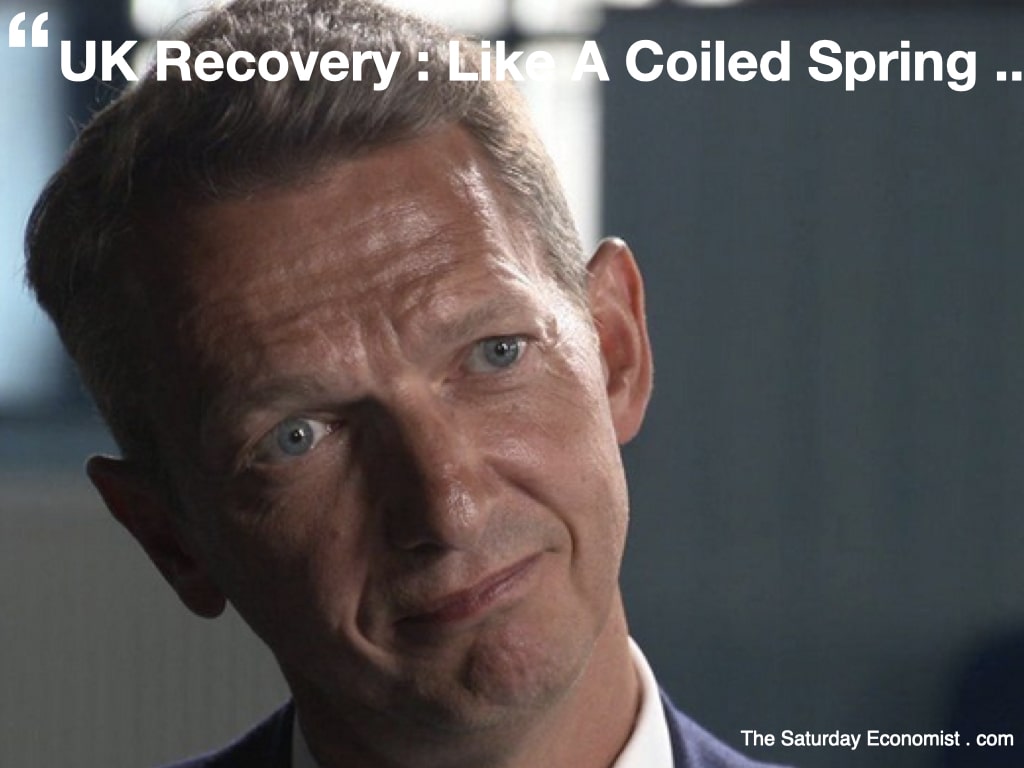
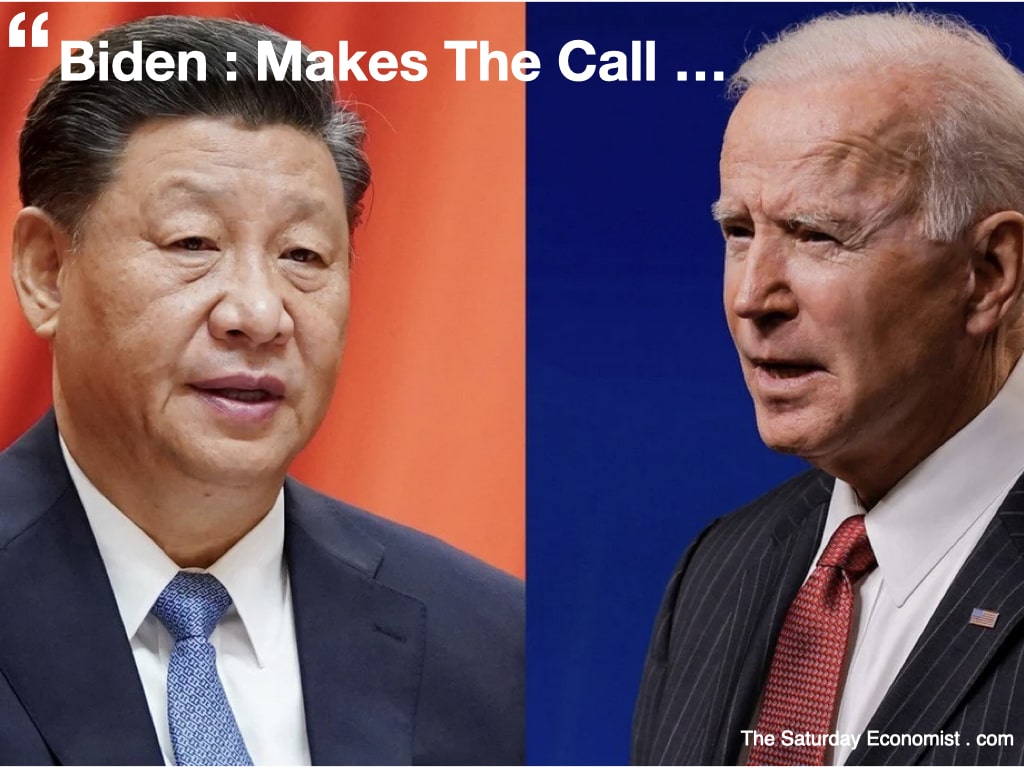

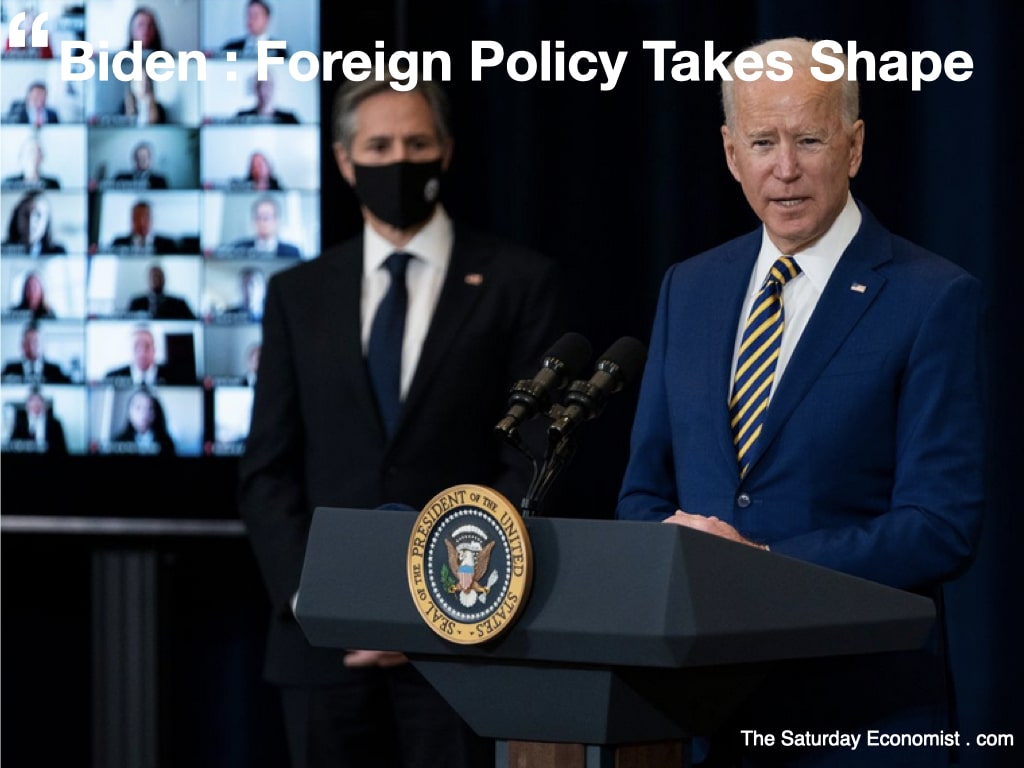
 RSS Feed
RSS Feed